-
chevron_right
Manga Publishers Maintain Pressure Despite Pirate Countermeasures
news.movim.eu / TorrentFreak · Saturday, 25 January - 09:41 · 4 minutes
 After decades of work, supporting a stated mission to destroy online piracy, rightsholders today understand the enormous task ahead. A few prominent outliers aside, more pragmatic terms to describe ongoing anti-piracy work, may even be gaining traction.
After decades of work, supporting a stated mission to destroy online piracy, rightsholders today understand the enormous task ahead. A few prominent outliers aside, more pragmatic terms to describe ongoing anti-piracy work, may even be gaining traction.
A staple of law enforcement agencies everywhere, ‘disruption’ is perhaps the most accurate term to describe successes in the context of an expansive, oversupplied, yet adaptive piracy market. The term acknowledges hard-fought gains on one hand, yet doesn’t imply permanent damage on the other.
Japan’s manga publishers are engaged in the same fight, but from a starting position where piracy ‘damage’ was effectively almost total. The scale of ‘disruption’ required in this context takes on a whole new dimension.
For years, pirate sites obtained pirated manga, and distributed translated versions to underserved fans in the West to satisfy demand. That exploited and then exploded a market that in relative terms barely existed.
This unique position for manga publishers isn’t simply about limiting how much pirates can bite from existing business, but a fight to be properly compensated as the market leaders, in a market already dominated by their own products.
Unlicensed Distributors, Illegal Competition
Last summer, Japan-based anti-piracy group Authorized Books of Japan (ABJ) revealed that 1,332 pirate sites, most dedicated to manga, were pulling in billions of annual visits. A relatively small number of the sites dominated the market. Of that total, an estimated 294 sites were described as catering to the Japanese market.
As the latest data from ABJ shows that 2024 began well. A series of achievements had led to fewer accesses to pirate sites from inside Japan. After the appearance of multiple large sites in June, it took less than six months to wipe out the gains of the past several years, and beyond that.
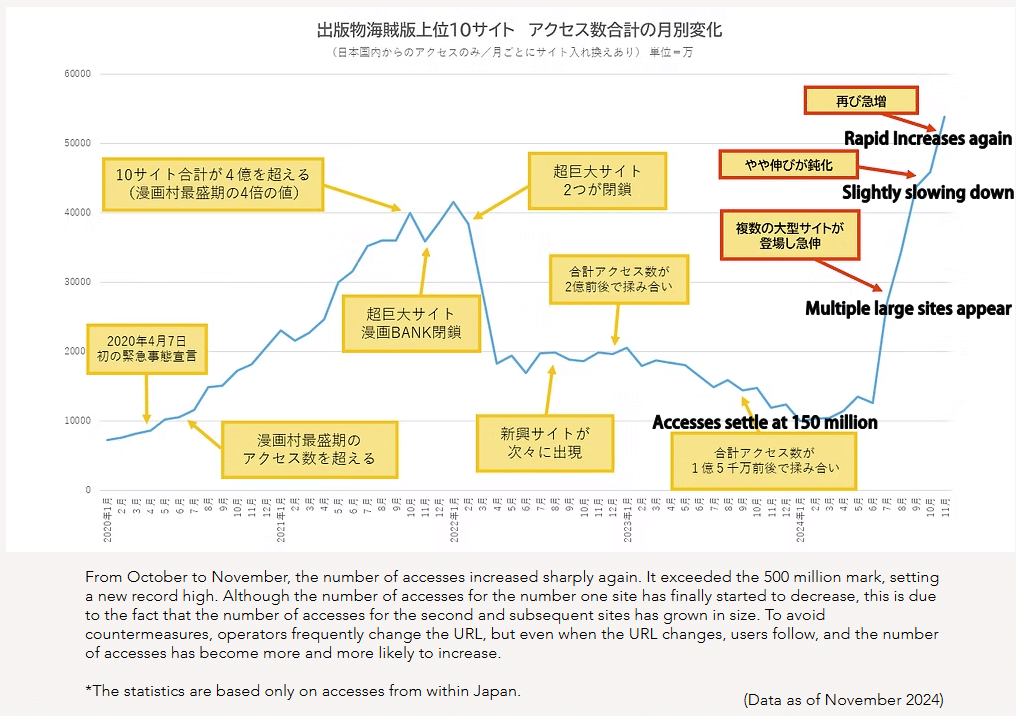
While events like these are not unexpected, it’s not difficult to imagine the effect on morale. Yet, if that’s part of the equation in Japan, there’s no evidence of that in public, nor is there any deviation from the long-term plan.
In the meantime, pressure on pirate sites continues.
Back in Court Once Again
Any pirate site of significance will appear on the radar of CODA , an anti-piracy group affiliated with the MPA . CODA represents the largest manga publishers in Japan – Shueisha, Shogakukan, Kadokawa, and Kodansha (in no particular order) – and when investigations call for new, additional, or potential information, one company is called upon to supply it more than any other.
Cloudflare is used by millions of sites and, any sample that large, will of course contain questionable players. A subset of those sites are some of the largest piracy platforms in the world. Cloudflare’s reasons for allowing them to retain service are well known and remain a point of friction among rightsholders, including those in Japan.
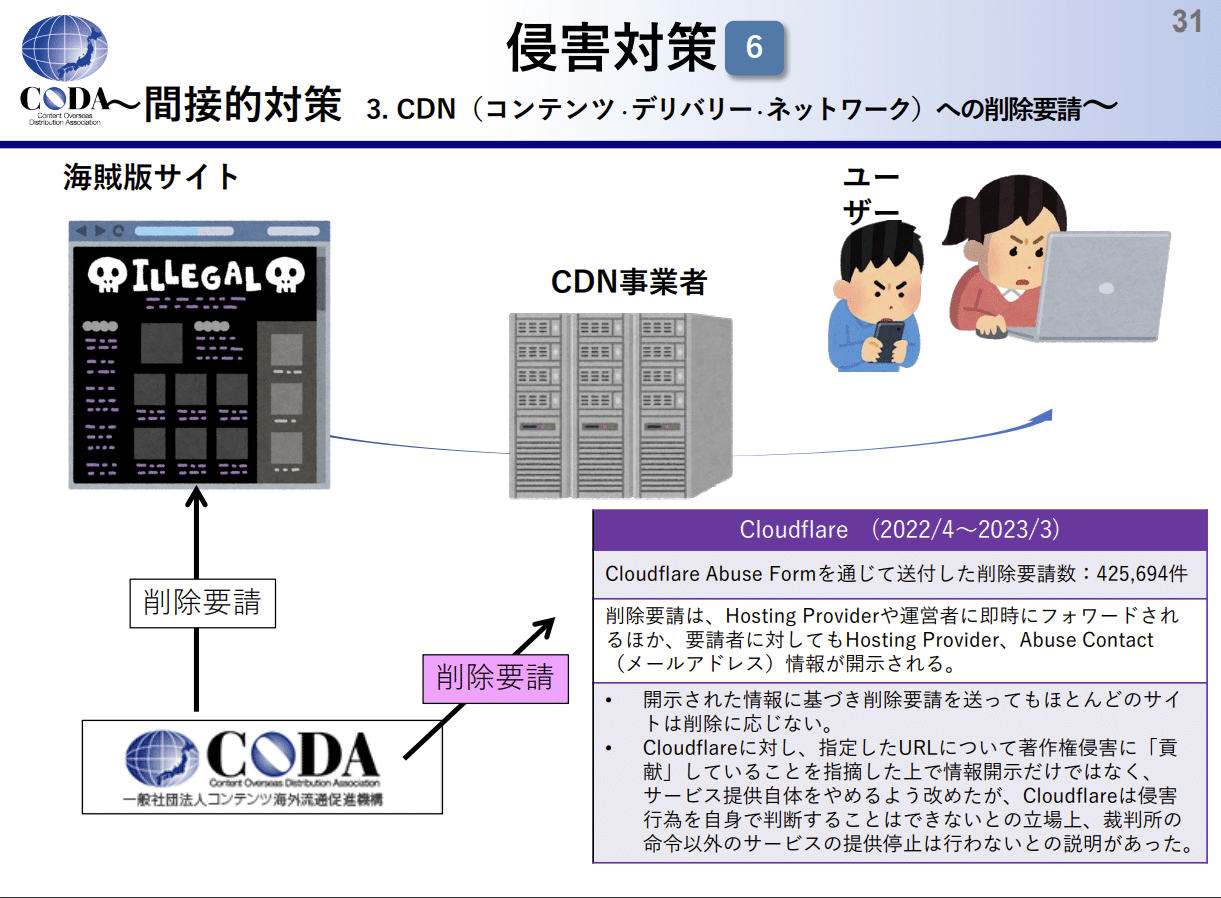
Becoming embroiled in the disputes of a relatively small number of users, is the gateway to much more of the same, involving much bigger groups with a diverse range of motivations. As a result, Cloudflare hands over personal information in copyright cases upon receipt of a valid DMCA subpoena.
On January 22, 2025, Shueisha filed a new DMCA subpoena application at the U.S. District Court for the Northern District of California (San Francisco Division). The table at the foot of the article lists the domains for which Shuesiha is requesting a range of identifying information, as follows:
name(s), last known address(es), last known telephone and/or cell phone number(s), any and all email address(es); account number(s); billing information (including, but not limited to, names, telephone number(s), and mailing and billing address(es) of each of all of the payment methods (including, but not limited to, credit cards, bank accounts, and any online payments system), hosting provider(s), server(s), any other contact information and any and all logs of IP address(es), relating to each individual or business entity that operates or owns each of the Infringing URLs, and each individual or business entity that has hosted content, uploaded content, and/or has contracted with others to upload or host content using the Infringing URLs, from any and all sources, including without limitation billing or administrative records with timestamps from the time of the registration of each Infringing URL until the date of this subpoena.
2. All access log information (IP addresses, corresponding port numbers, corresponding dates and times, access type, and corresponding destination IP addresses) relating to each of the Infringing URLs listed below.
In various forms, similar requests have previously targeted linked/similar domains, possibly on two or more occasions.
With an abundance of patience and a massive market to secure, two or twenty more occasions shouldn’t be ruled out. Likewise, the chance of malware infection (or phishing attempt) upon visiting at least one but potentially any of URLs listed below, without checking first .
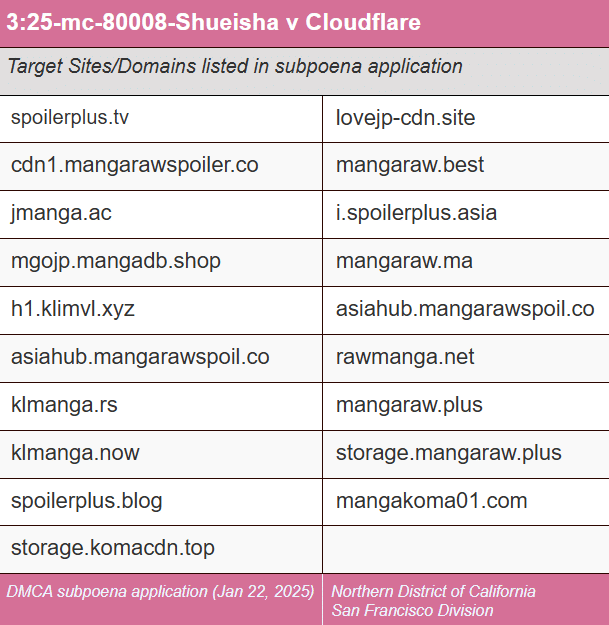
From: TF , for the latest news on copyright battles, piracy and more.
 The latest wave of the UK government’s Copyright Infringement Tracker study was expected a year ago. There’s still no indication when it will arrive, or even if it will arrive at all, a shame considering interest generated by previous reports.
The latest wave of the UK government’s Copyright Infringement Tracker study was expected a year ago. There’s still no indication when it will arrive, or even if it will arrive at all, a shame considering interest generated by previous reports.
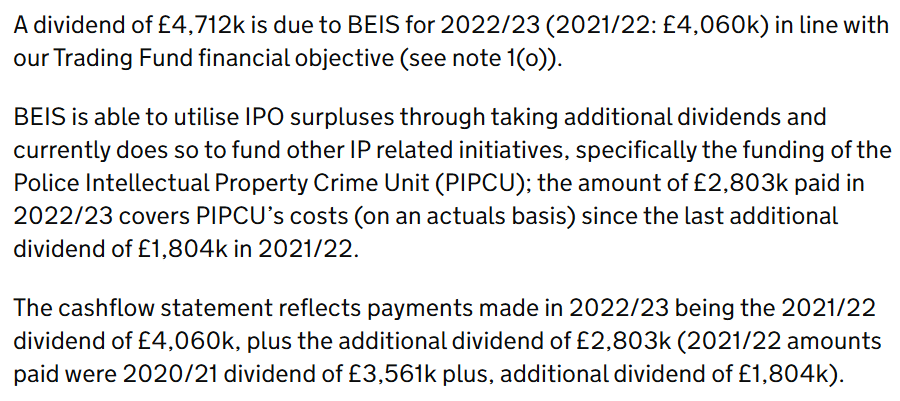
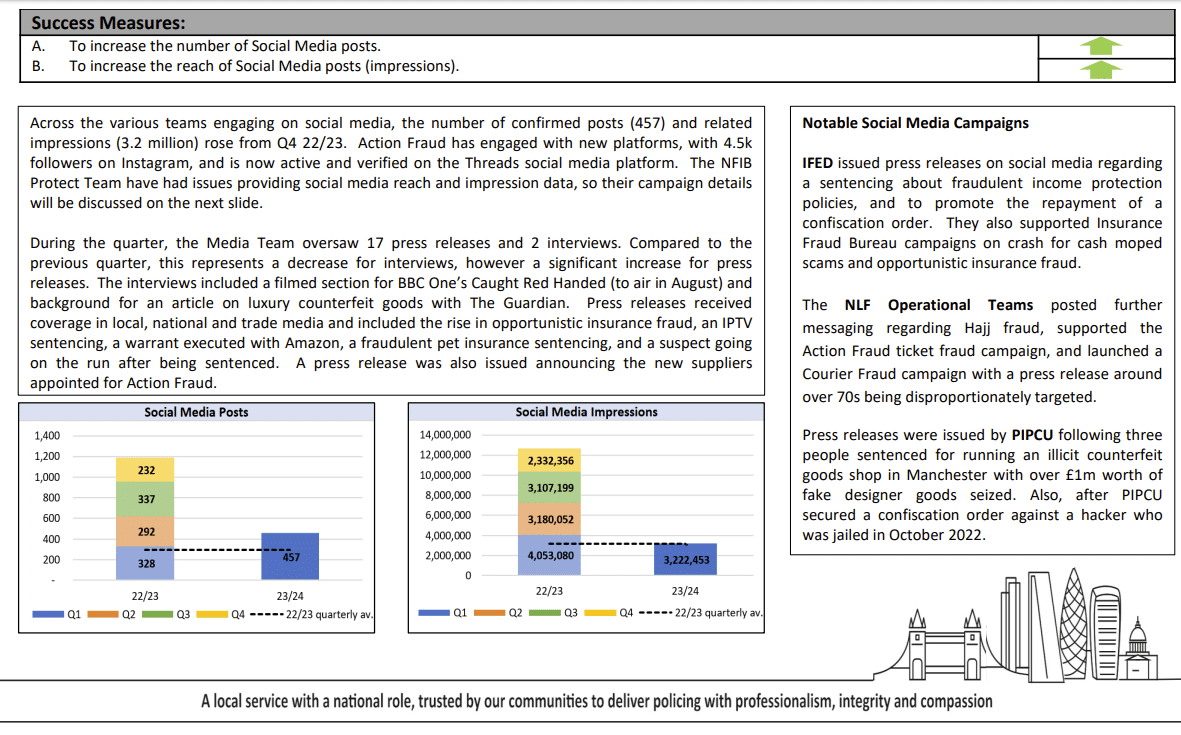

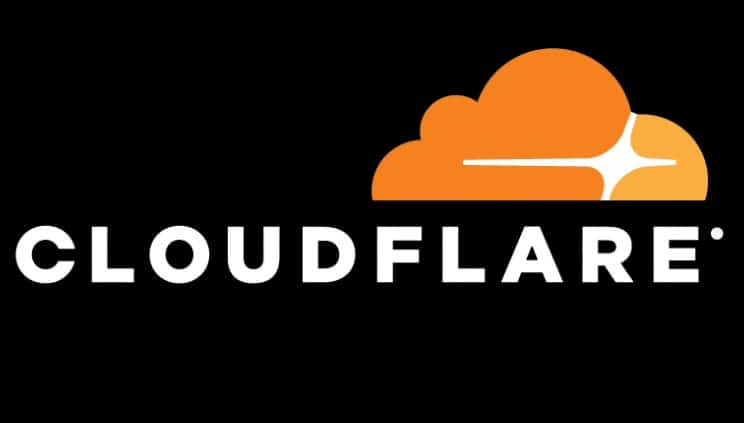 Internet infrastructure company Cloudflare provides a range of connectivity and security services to millions of customers around the globe.
Internet infrastructure company Cloudflare provides a range of connectivity and security services to millions of customers around the globe.
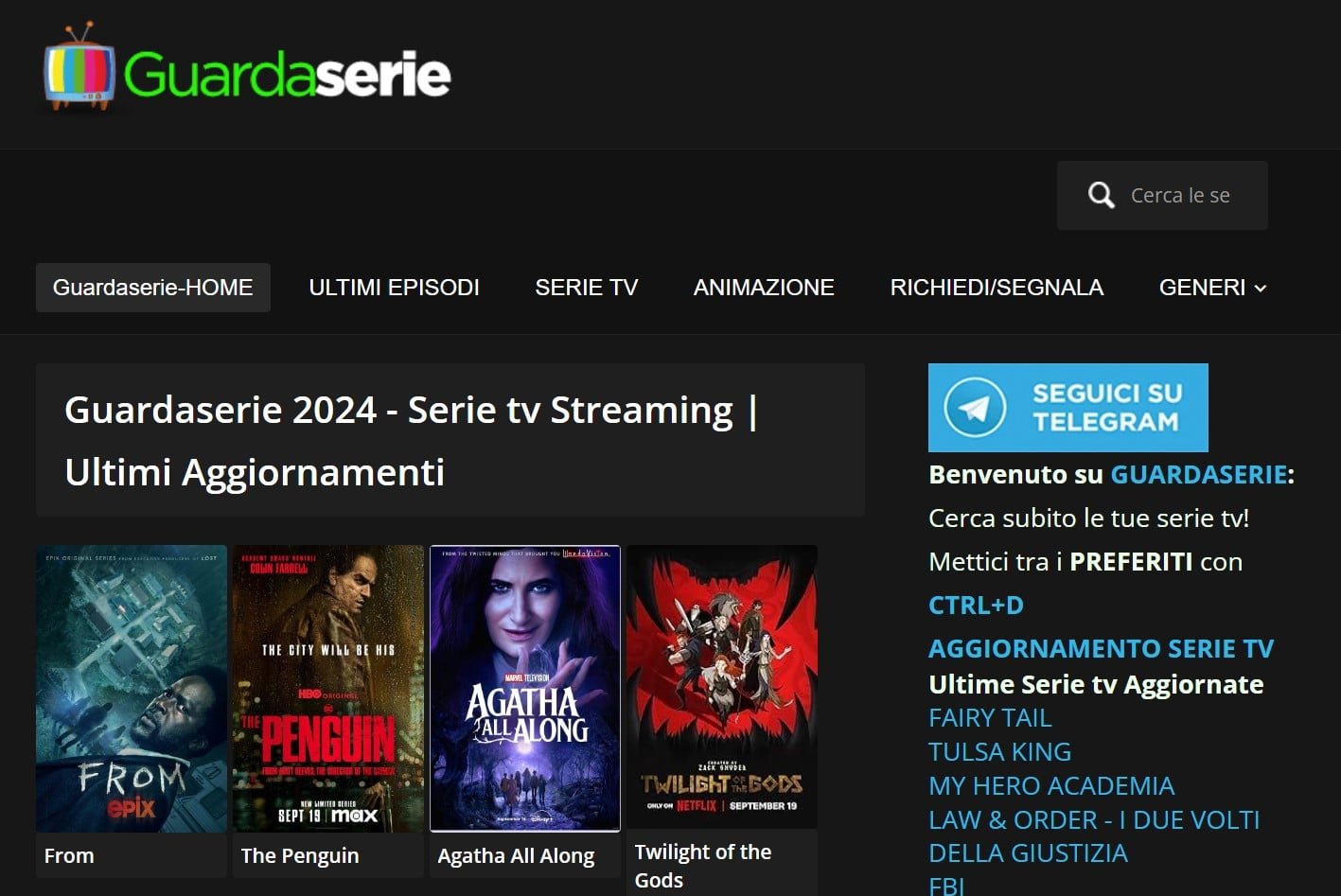
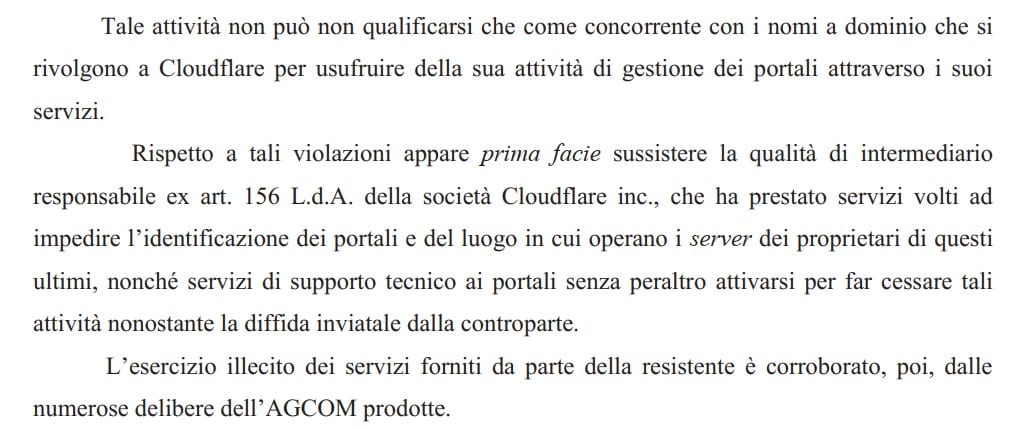
 TorrentGalaxy has had its fair share of issues over the past few months.
TorrentGalaxy has had its fair share of issues over the past few months.




 For years, Fmovies presented a major threat to Hollywood, one that seemed near impossible to defeat.
For years, Fmovies presented a major threat to Hollywood, one that seemed near impossible to defeat.
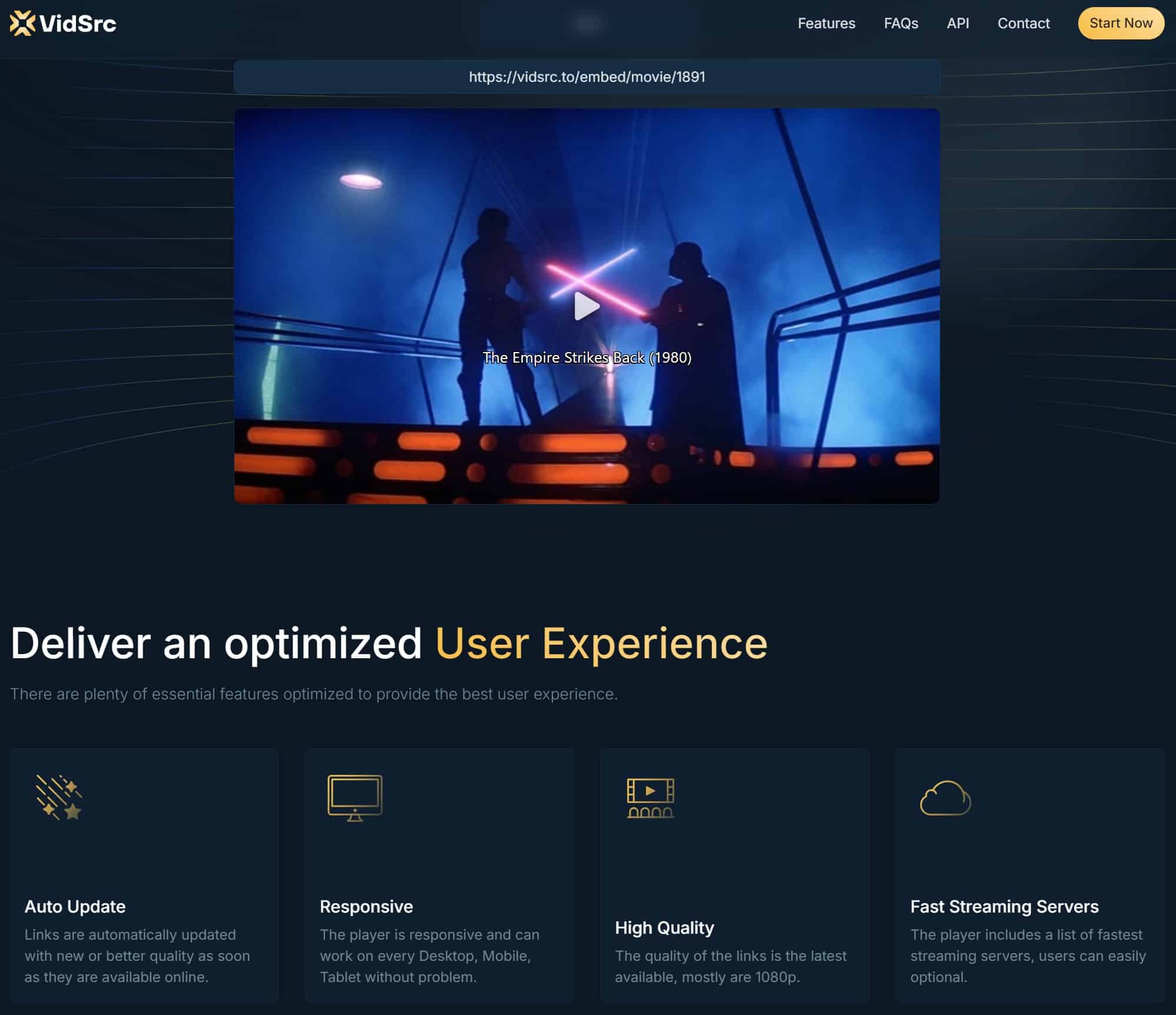

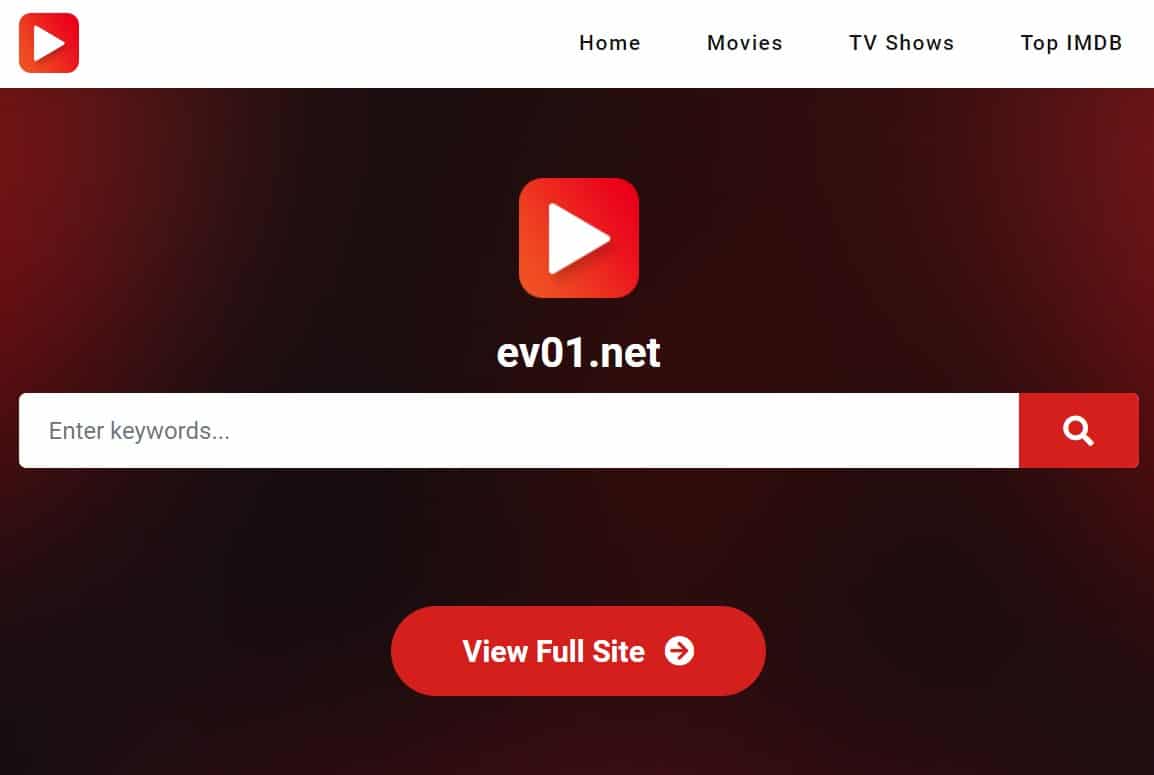
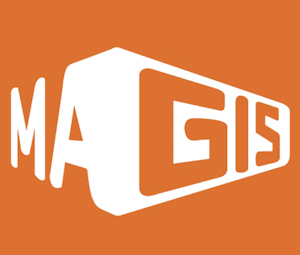
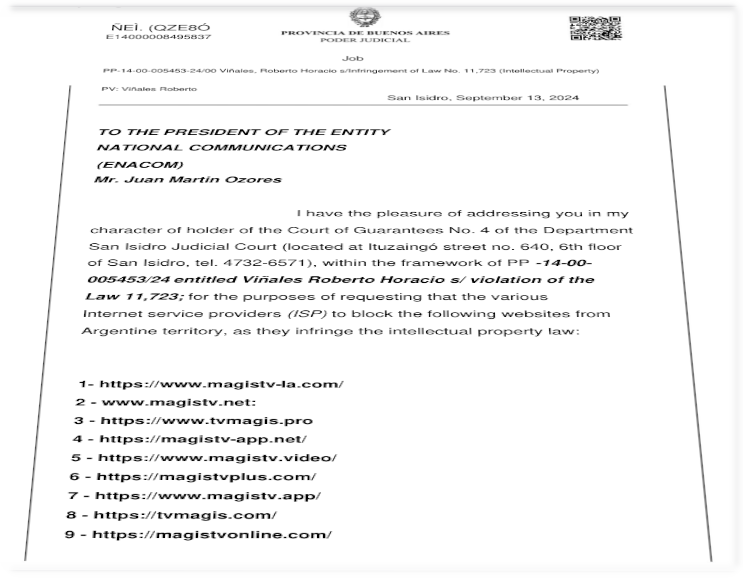


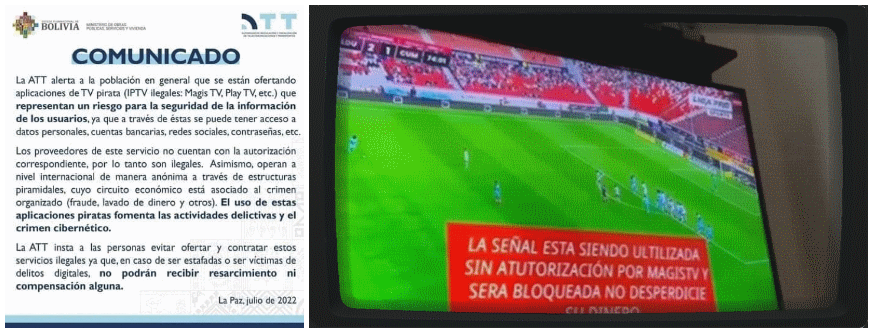
 In 2021, Germany joined a growing list of countries that have institutionalized pirate site blocking schemes in place.
In 2021, Germany joined a growing list of countries that have institutionalized pirate site blocking schemes in place.
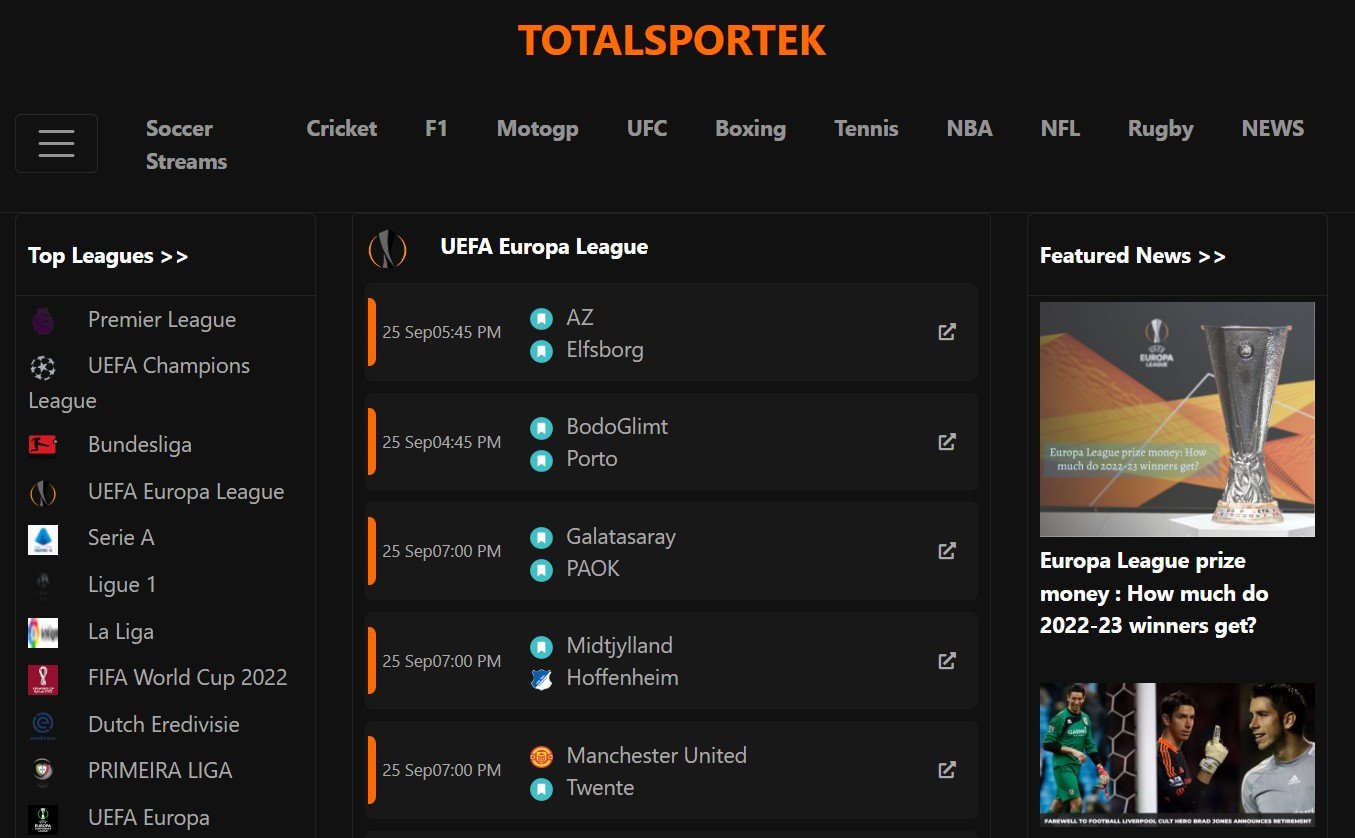
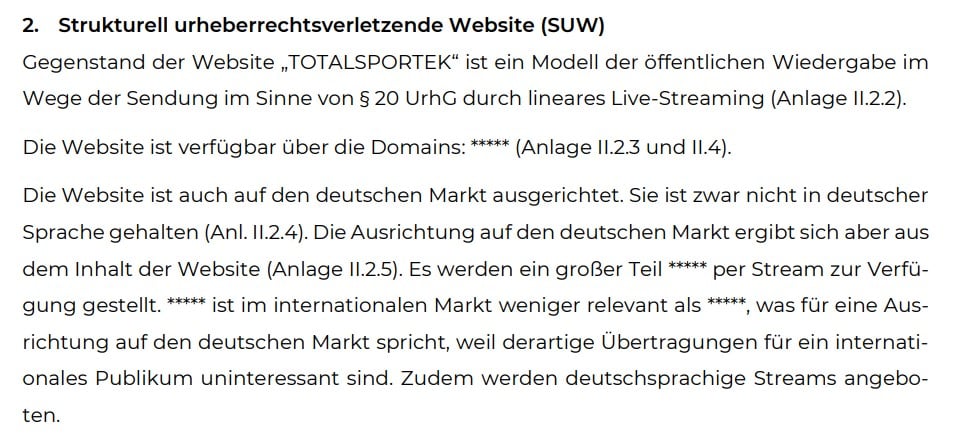
 Music piracy has been around for decades and there are no signs that it will disappear anytime soon.
Music piracy has been around for decades and there are no signs that it will disappear anytime soon.

